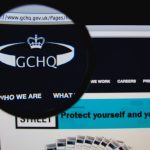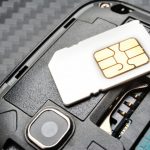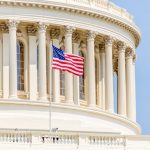Microsoft signs letter to congress calling for changes to government surveillance

Microsoft has teamed up with the likes of Mozilla, Silent Circle, Human Rights Watch, the Electronic Frontier Foundation and others, signing a letter to the White House and Congressional leaders that calls for an end to bulk collection of data. Many people and organizations have called for reform to the USA Patriot Act and this letter is the latest attempt to pile pressure on the government to make changes.
Scores of signatories point out that the USA PATRIOT Act Section 215 is due to expire in June, and now is the time to instigate reform. A call is made for greater privacy protection to be put in place when data is collected, as well as for improvements in transparency.
Opera acquires VPN firm SurfEasy to boost browsing security

Opera Software, the company behind the web browser of much the same name, has acquired SurfEasy, a provider of VPN security. SurfEasy's software bolsters the security of internet users by adding a layer of encryption that helps to protect privacy.
More than this, the software also makes it possible to bypass some online restrictions and to access sites that are region locked. Few details have been revealed yet, but it's possible we could see VPN features integrated into future versions of the desktop and mobile Opera browser.
Amnesty calls for ban on mass surveillance

Amnesty is taking legal action against the US and UK governments, challenging “the lawfulness of their indiscriminate mass surveillance programs”.
The human rights campaigning group will head to the European Court of Human Rights in Strasbourg on Friday because, it says, "every legal avenue in the UK has been exhausted".
GCHQ does not engage in indiscriminate blanket surveillance

When Edward Snowden blew the whistle on the activities of the NSA, it sparked a global interest in how internet traffic is monitored. The UK's Intelligence and Security Committee of Parliament today published a report into online surveillance carried out by GCHQ, MI5 and MI6 after an 18-month inquiry.
Among the findings is the conclusion that surveillance is legal, but an overhaul is needed to increase transparency. The suggestion that GCHQ's interception of emails "does not equate to blanket surveillance, nor does it equate to indiscriminate surveillance" is likely to be met with skepticism. But what's likely to raise more eyebrows is the revelation that the agency has apparently managed to crack encryption.
NSA and GCHQ hacked world's biggest SIM card manufacturer to steal your data

In mid-2013, Edward Snowden revealed that the government-backed agency NSA monitored everything happening on the Internet, including spying on individuals' phone calls, messaging, and emails to glean information and pinpoint suspicious activities in an attempt to stop the growing terrorist acts.
Since the revelations -- which changed everyone's perspective on privacy -- the leaked information from Snowden and acceptance from major technology companies have given us an understanding of how the NSA managed to get our data from the services we heavily rely on. Essentially, either providers agreed to turn over our data or the NSA found another way, a backdoor, to obtain it. But how it manage to tap our phone calls was mostly unclear. Last year, Vodafone did acknowledge that it allowed the NSA to place surveillance tools inside its data centers. But as it turns out, the agency had more ways to log our phone activities.
Worldwide Equation Group hid undetectable spyware on hard drives

In a new twist to the on-going NSA story, security firm Kaspersky Lab has discovered that a threat actor of previously unknown complexity and sophistication has been embedding surveillance software on hard drives produced by a number of well-known manufacturers. With names such as Western Digital, Seagate and Toshiba mentioned, and the reach of the spy program stretching to dozens of countries, it's not clear quite how many people may be affected.
Although Kapersky does not go as far as naming the NSA, or even specifying which country is responsible for the advanced surveillance, it seems that the spying campaign is somehow related to Stuxnet -- the tool used by the NSA to attack Iran -- and the Flame group.
Thanks to Snowden, NSA-GCHQ surveillance data sharing is now legal

A secret UK court has ruled that the UK's intelligence agency GCHQ acted unlawfully by intercepting information gathered by the NSA. Investigatory Powers Tribunal said that because the rules surrounding the UK’s access to the NSA's PRISM and UPSTREAM program data were secret, data sharing between the US and UK was illegal. A case has been brought against GCHQ by Privacy International, Bytes for All, Liberty, and Amnesty International.
But while the IPT said that accessing this information breached human rights laws this is no longer the case. Why? The illegality of sharing data collected through these surveillance programs centered on the very fact that they were secret. In blowing the whistle about what the NSA was doing, Edward Snowden unwittingly made this data sharing legal. Whoops.
US firms don't want to hand over source code and provide backdoors to Chinese government

Technology firms in the US have written to the Chinese government asking for a postponement to the introduction of rules that would oblige companies to hand over source code as well as providing backdoors into hardware and security products sold to Chinese banks. A group of companies wrote to the Communist Party committee on cybersecurity to express disapproval at plans to underrcut the requirements later in the year.
China says that it is concerned solely with cybersecurity and wants foreign technology companies to submit to audits in addition to complying with the other demands. Outside China, the feeling is that the proposed regulations have been designed to either control outside business, or to scare companies out of the market, opening the way for Chinese firms.
North Korea blamed for Sony hack because NSA had been spying since 2010

When Sony Pictures was hacked, the US was quick to point the finger of blame at North Korea. Security experts may have disagreed, but newly declassified documents show that the NSA had been monitoring the nation as far back as 2010 -- and there are even hints that the US was aware of the possibility of North Korea launching some form of cyberattack.
With the help of allies such as South Korea, US intelligence services were able to tap into North Korean web traffic. The NSA also went as far as installing malware on North Korean computers with a view to monitoring the activity of key systems. New papers published by Der Spiegel show that it is this spying that helped to pin the blame for the Sony attack on NK.
Ban encrypted messaging apps? You'd have to be an idiot to think it workable

Wherever you are in the world, it's quite likely that your government wants to monitor your communication, be it online or via phone. Following the tragic events in France, politicians have voiced a desire for greater snooping powers. UK Prime Minister David Cameron has suggested that he would ban encrypted messaging tools if he wins the next election.
He has said that he would move to block the use of methods of communication that could not be intercepted and read by security services. With tools such as iMessage, WhatsApp and Snap Chat providing encrypted messaging options, could their days be numbered? Or is this an idiotic and unworkable way of looking at things?
Edward Snowden condemns Amazon's 'morally irresponsible' encryption policy -- users don't care

In a near-perfect example of how there is always more than one way to look at things, Edward Snowden has very different views on Amazon than Amazon users do. On Friday, Snowden appeared -- as ever -- via video link at the surveillance symposium at the Cato Institute. He condemned Amazon's lack of encryption of customers' searches, referring to the practice as "morally irresponsible".
But Snowden's condemnation of Amazon comes at the same time as a study by Bizrate Insights which finds that more than 45 percent of online shoppers trust the site with their payment and personal information. So why the disparity?
Idaho nurse gains backing of EFF and ACLU in fight against the NSA

Usually it's the big guys, or at least national and international organizations, that stand up to fight against the government. But on Monday, a nurse from Idaho will continue to fight the case she brought against Barack Obama and government intelligence agencies. Anna Smith says her Fourth Amendment rights were violated when the NSA collected data about her from phone records.
A district court ruled against Smith when she first started to fight the case, but now she has the backing of the Electronic Frontier Foundation (EFF), the American Civil Liberties Union (ACLU) and the American Civil Liberties Union of Idaho.
Government surveillance does not breach human rights -- Amnesty International disagrees

Amnesty International hit out at a court ruling that found communication surveillance carried out by UK secret services did not breach human rights. Amnesty UK and Privacy International brought the case to court following revelations by Edward Snowden that showed GCHQ (UK secret services) and the NSA had been spying on people by monitoring their correspondence.
But a panel of judges found that the actions of GCHQ do not contravene the European Convention of Human Rights. Amnesty said the result was "disappointing if unsurprising" and indicated that it will appeal at the European Court of Human Rights in Strasbourg.
Symantec uncovers Regin, a highly advanced stealth spying tool developed by a nation state

Security firm Symantec has released details of an advanced cyberespionage it has discovered. Called Regin, the backdoor Trojan is described as having a structure that "displays a degree of technical competence rarely seen". Symantec goes as far as saying that the levels of resources required to create such a highly advanced tool indicate that it was created by a nation state -- although there is no suggestion about who it might be.
The report says that Regin has already been used in mass surveillance programs not by but against government organizations. Symantec estimates that the tool may have been years in development, as it delivers multi-stage attacks, and great lengths are taken to hide each stage. The framework was designed to facilitate long-term surveillance, and the concealment techniques used make Regin difficult to fully understand.
Republicans vote against USA Freedom Act that would have limited NSA surveillance

A bill that could have curtailed the surveillance activities of the NSA has been rejected by the US Senate. The USA Freedom Act was blocked as a bloc of Republican senators voted against the Obama-backed bill. After the Edward Snowden revelations, there have been many vocal calls for the powers of the NSA to be reined in. This was the bill that was supposed to deliver, but right wing opponents referred to it as a "gift to terrorists".
The bill passed the House of Representatives in May and had the backing of many of the biggest technology companies. One of the main aims of the USA Freedom Act was to stop the collection of domestic phone records, but there were also implications for the agency's online dragnet-style data trawling. Now it seems that the fight for privacy starts afresh.
Recent Headlines
Most Commented Stories
BetaNews, your source for breaking tech news, reviews, and in-depth reporting since 1998.
Regional iGaming Content
© 1998-2025 BetaNews, Inc. All Rights Reserved. About Us - Privacy Policy - Cookie Policy - Sitemap.